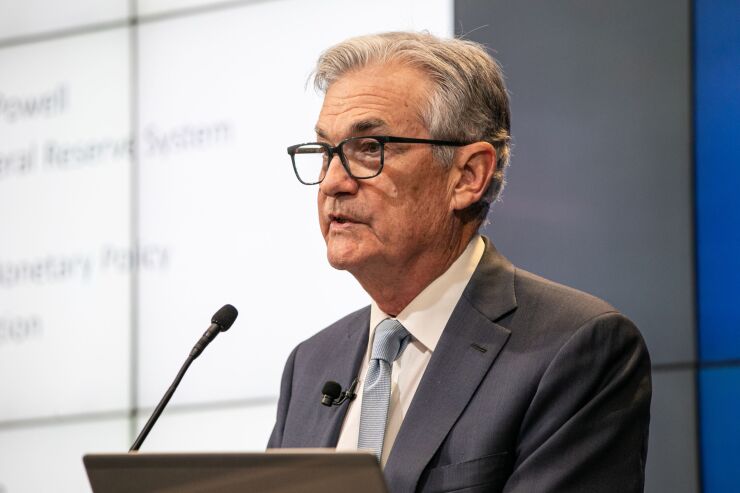NEW YORK — Economic uncertainty, climate change and cryptocurrencies are the three biggest risks facing the banking system, the Federal Reserve Bank of New York's top supervisor said.
In a speech delivered Thursday morning, Diane Dobbeck, head of the New York Fed's supervisory group, said ensuring banks are prepared to deal with those three topics is a top priority for her team at the moment.
Overall, Dobbeck, who delivered her prepared remarks at the Financial Times Global Banking Summit, said the banking system is fundamentally sound, adding that the largest banks hold enough capital to continue lending through a severe downturn and enough liquidity to deal with economic stress. She also noted that total loans have grown more than 10% year over year and return on equity remains in line with historic levels.
Still, she said, banks face potential systemic challenges for which they should be prepared.

"While the current picture is one of resilience," she said, "we remain attuned to risks faced by banks."
On the broad economic front, Dobbeck said changing interest rates are a "watchpoint," with supervisors asking about how banks are prepared to deal with the unrealized losses on their balance sheets from declining values of their securities portfolios.
She added that rising rates could affect borrowers of floating-rate debt and their ability to make loan payments.
"For example, commercial real estate loans are often linked to floating rates, and the outlook for commercial properties is also affected by the shift to remote work," Dobbeck said. "This sector is particularly relevant to the New York Fed — one of the largest commercial real estate markets in the world is in our district."
The New York Fed oversees the Fed's second district, which includes New York State, northern New Jersey and Fairfield County, Connecticut.
Climate change could have implications both for individual banks and the broader financial system, Dobbeck said, but questions remain about how to manage those risks. She said the New York Fed will look at the results from the Fed Board of Governors'
"The pilot exercise is distinct from the annual stress tests the Federal Reserve conducts," Dobbeck said. "It will not result in supervisory or capital implications—rather, it will be a way for both banks and supervisors to learn."

Dobbeck noted that four of the six banks involved in the pilot climate stress test — JPMorgan Chase, Citigroup, Morgan Stanley and Goldman Sachs — are based in New York.
As for crypto, Dobbeck said the growth of the sector and the recent high-profile
In August the Fed issued guidance to banks telling them to report their intentions to engage in crypto-related activities to their supervisors beforehand to ensure effective controls are in place. Dobbeck said these requirements vary depending on the type of activity.
"For example, if a bank accepts crypto-related deposits, it must consider the funding implications in the event those deposits were to exit the bank quickly," she said.
While economic changes, climate change and crypto are top of mind, Dobbeck said New York Fed supervisors will track the full gamut of risks faced by banks in the second district. She added that while banks are in good financial shape at the moment, they cannot afford to become complacent.
"While the banking system is currently resilient, it is essential that banks have strong risk management practices to identify challenges and maintain resiliency in this evolving environment," she said.





